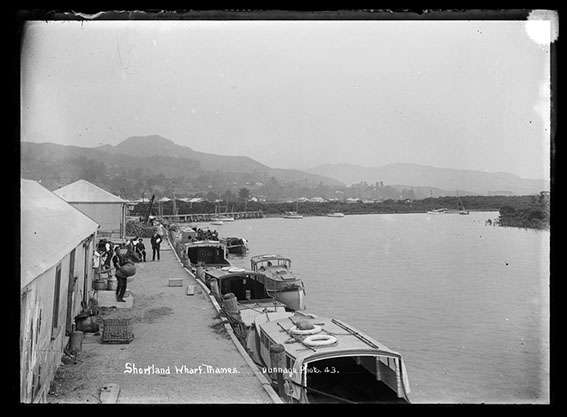As part of a Valley Profile series, MEGHAN HAWKES explores our local history by seeking out stories of life and death in the Thames Valley
When Charles Dod disappeared, all eyes turned to Shortland wharf.
The amiable licensee of the Duke of Edinburgh Hotel had for a long time taken quiet evening strolls along the wharf. He attended to an eel weir there and was in the practice of standing at the wharf’s edge smoking his pipe.
Shortly after 8pm on that June night in 1886, one of his sons realised he was missing and it was immediately suspected he had fallen off the wharf in the darkness. A number of men began searching and discovered Charles’ hat floating in the water. William Jones, boatman, and two other men went out in a dingy with grappling irons. They searched alongside the wharf for more than an hour without success.
Captain Bettis and William then walked down alongside the creek, wading through mud. About 12.30pm they found Charles around 150 yards from the wharf. They took the body to the Thames Hotel prior to an inquest. Intense regret was felt as Charles was highly regarded by all knew him.
He was a good swimmer, and speculation was that he had been stunned by a fall. There had been a rain shower and the wharf was slippery. Charles had been cautioned about his habit of standing near the edge of the wharf.
At the inquest, Mrs Avery, Charles’ sister-in-law, said she saw him last about 7.30pm when he was arranging for her to temporarily take charge of the hotel while he visited Auckland, which he intended to do the next day. He was in his usual good health and perfectly sober.
Constable Stapleton said that there was a cut over Charles’ left eye but in his opinion it was not caused by foul play. Captain Bettis said the wharf was very crowded with vessels that night. There were no lines moored across the wharf so as to trip up anyone. They could do with another lamp on the wharf. William Jones also said he didn’t think the wharf was sufficiently lighted: one more lamp near the crane would be enough.
The jury’s verdict was that Charles Dod was found dead on the beach at Shortland, but how he came to his death they had “not sufficient evidence to prove”. They “desired to draw the attention of the authorities to the deficient lighting of the Shortland wharf, and the necessity of additional lamps being provided there.”
Charles was well known both at Thames and in Auckland, and was much respected. He had been the licensee of the Duke of Edinburgh for about 19 years and had a most genial and obliging nature.
Charles, 63, was a widower, his wife Margaret having died in childbirth in 1872. He had three sons.
At St George’s Church, the funeral service was read by Reverend Evans. He said the voice of God had been speaking to them by the sudden demise of Charles, reminding them life was brief.
A large number of friends then followed the hearse to Shortland cemetery. A few weeks after Charles’ death it was decided an additional lamp on Shortland wharf was not required.




